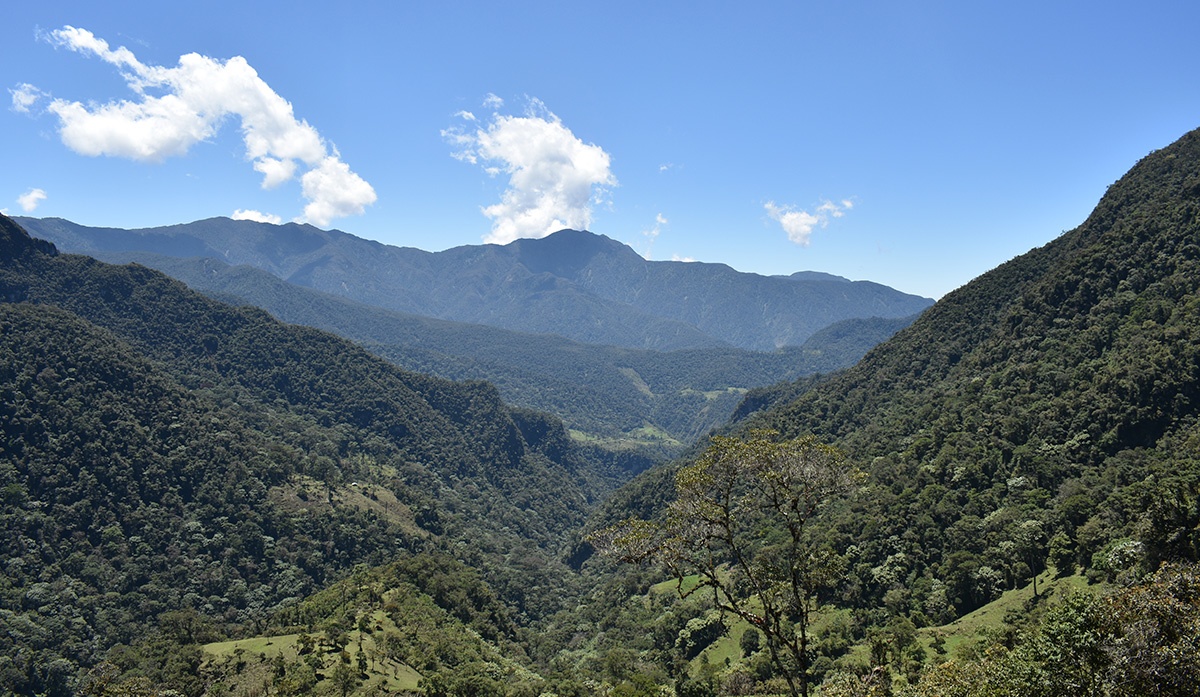On December 16, 2020, Initiative 20x20 hosted a webinar for its network entitled Carbon Markets for Nature-Based Solutions: A Regulatory Framework. The webinar was part of a series the Initiative 20x20 Secretariat launched to keep its partners and supporters connected during the COVID-19 pandemic.
This iteration of the series highlighted the significant portion of greenhouse gas (GHG) emissions generated from the agriculture, forestry, and other land use (AFOLU) sector in Latin America and the Caribbean, as well as the critical need to decarbonize the sector by making farms, forests, pastures, and wetlands a carbon sink.
Scaling up nature-based solutions (NBS) to climate change, which include landscape restoration and reforestation, can contribute to this process, but much more investment is needed. To this end, a panel of experts discussed how building a transparent and efficient carbon market could mobilize the investment needed to implement nature-based solutions at scale in the region.
In her opening remarks, Frances Seymour, Distinguished Senior Fellow at World Resources Institute (WRI), noted the timeliness of the conversation. She highlighted that in recent years there has been a surge in interest in carbon markets - and the use of NBS within those markets - among large corporations exploring how to achieve their climate commitments. However, despite years of infrastructure-building through initiatives like REDD+, there is currently no standardized regulatory framework or compliance structure on how to manage international carbon markets. As voluntary carbon markets gain more attention as a strategy to mitigate climate change, governments, private investors, NGOs, and local communities will have to deal with these issues to ensure that people and the planet truly benefit.
Mary Grady, International Director of the Architecture for REDD+ Transactions (ART), followed with a keynote address detailing the critical role of NBS to deliver low-cost emissions reductions on a global scale. She pointed to a report that states that preserving forests, along with other natural climate solutions, could deliver one-third of the climate mitigation results that the IPCC says are needed by 2030.
But we must first mobilize billions of dollars of public and private investment. To achieve this, Grady proposed a three-pronged strategy:
1) Focus on opportunities that are scalable for the highest impact. This includes halting deforestation, protecting standing forests, and restoring cut or degraded forests;
2) Adopt NBS in compliance-based carbon markets;
3) Build a system with integrity so funders can scale investments. This includes offering a solution to connect private carbon credit buyers with verified jurisdictional REDD+ suppliers.
Based on these pillars, ART aims to enable financiers to invest with confidence, while unlocking the large-scale finance that governments and local communities need to protect and restore their forests.
Juan Andrés López Silva, founding member of ASOCARBONO, and Juan Carlos Gonzalez Aybar, Senior Project Manager of Nature-Based Solutions at Total, provided brief commentaries on Grady’s presentation. López shared lessons from Colombia, which is working to develop REDD+ programs using the jurisdictional approach. He stressed the urgency of combatting rapid deforestation and noted the importance of consulting indigenous communities as a key safeguard when establishing REDD+ projects.
Speaking from the private sector side, Aybar described Total’s mandate to invest in existing community projects that can be nested in the jurisdictional approach. As a native of Peru, he made the connection between poverty and deforestation and outlined how the right government policies aimed at reducing poverty can also alleviate pressure on forests. The goal of the investor, he said, should be to deploy funds while empowering “the doers”: biodiversity and conservation experts, entrepreneurs, and project developers on the ground.
There was a spirited discussion on the need for jurisdictional approaches to allow for an active role by the private sector and measures that would prevent crowding the carbon market under exclusive arrangements that would exclude other market actors.
In her remarks concluding the event, Charlotte Streck, founder of Climate Focus, restated the importance of nature-based solutions and urged the need for a suite of policy solutions if countries are to achieve their commitments to the Paris Agreement. Carbon markets are not a silver bullet, she said, but they are certainly an important piece of the climate mitigation puzzle. With regards to deforestation and scaling restoration, Streck emphasized: “We need to act, and we need to act now.”
The webinar was organized by WRI staff and was moderated by Initiative 20x20 coordinator Walter Vergara. Please find the recording below:
